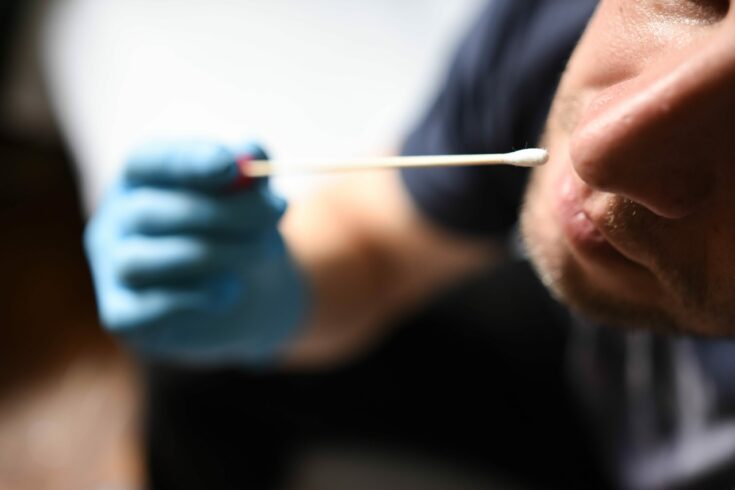More accurate rapid diagnostics for COVID-19 are being developed using an isothermal test that simultaneously detects two gene targets.
The tests are being developed by the i-sense group at University College London (UCL).
It is funded by the Engineering and Physical Sciences Research Council (EPSRC).
The research team, led by Professor Rachel McKendry, has developed what is called a rapid nucleic acid amplification test (NAAT).
How do the tests work?
This is how the new NAAT test works and how it relates to the current COVID-19 testing:
- NAAT tests use recombinase polymerase amplification (RPA). RPA simultaneously detects multiple genes to ensure that the test is still accurate, even when variants occur
- RPA is a highly sensitive and selective isothermal (involving a constant temperature) amplification technique, operating at 37 to 42°C
- the NAAT approach offers an alternative to the standard lab-based polymer chain reaction (PCR) tests currently used for COVID-19
- PCR tests require a thermocycler (the laboratory apparatus most commonly used to amplify segments of DNA) for temperate control. They take a relatively long time to create results
- RPA is a method of isothermal amplification, meaning that it is performed at constant temperature, in this case at much lower temperature than PCR testing
- therefore, RPA requires minimal equipment to perform, making testing more widely accessible
- this RPA analysis developed by the i-sense team also provides faster results.
Multi-gene detection
Dr Da Huang, joint first author and i-sense postdoctoral researcher at UCL, said:
To the best of our knowledge, this COVID-19 multi-gene detection RPA test is the first of its kind.
It requires only one to two steps so that it can more easily be performed in settings with limited resources.
Dounia Cherkaoui, first author and i-sense PhD student at UCL, said:
Using multi-gene detection is crucial as a mutation in the S gene of the B.1.1.7 variant, also known as the Alpha or Kent variant, led to ‘S gene target failure’ in some molecular tests earlier in the pandemic.
These cases may have been missed if PCR tests were not looking at multiple genes to confirm the presence of the virus.
This is why multi-gene detection is vital and it can increase the accuracy of rapid tests.
Test accessibility
Researchers designed the test with two alternative readout methods:
- real-time fluorescence
- a simple dipstick.
The choice of two readout approaches aims to make the test more accessible in different settings.
The team designed the fluorescence method to be read by a portable reader, whilst the dipstick method can be read by eye, making it easier to deploy in resource-limited settings.
The assay (analysis) used model samples and tested specificity against a range of common seasonal respiratory viruses.
Next steps
The research team envisages that in a final clinical test format, users would provide a saliva sample for testing.
This format is approved by the World Health Organization for COVID-19 testing and is ideal as it is a non-invasive method for sample collection.
Next steps for this research will include clinical validation with patient samples.
By adapting the test in the future to include other gene targets, it could be used to identify different COVID-19 strains, including new variants, without the need for sequencing.
Further information
The i-sense group at UCL was published in Biosensors and Bioelectronics.
This research was funded by i-sense:
- EPSRC interdisciplinary research collaboration in agile early warning sensing systems for infectious diseases and antimicrobial resistance (EPSRC grants on the web, EP/R00529X/1)
- and associated i-sense COVID-19 plus award.
This research was also funded by a EPSRC London Centre for Nanotechnology studentship for Dounia Cherkaoui (EP/N509577/1).
The researchers involved in this paper include:
- Dounia Cherkaoui
- Dr Da Huang
- Dr Benjamin S. Miller
- Dr Valérian Turbé
- Professor Rachel A. McKendry.
Last updated: 8 June 2021

